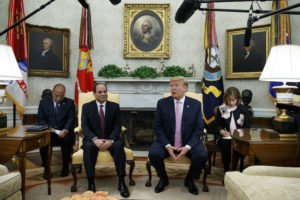Arab Outrage Should Come as No Surprise
Mrs. Clinton, the secretary of state, appears to believe that the Arabs and Egyptians should be grateful to America, and most Americans would probably agree.“How could this happen?” Hillary Clinton demanded to be told, after the demonstrations and the attack upon the American diplomatic mission in Benghazi that killed the American ambassador to Libya and three other Americans. “How could this happen in a country we helped liberate, in a city we helped save from destruction?”
If she doesn’t know, there probably is no use in trying to explain to her — and to many other Americans — the cause of events in Benghazi and other recent manifestations of anti-Americanism in cities across the world, provoked by the YouTube video clip denigrating the prophet Muhammad.
Hers was not the only such reaction. An “NBC News” correspondent in Cairo has been quoted (by the French web-commentary Dedefensa) as saying of the protests at the embassy there, “It is somewhat ironic [to see this happen] with American diplomats inside the embassy who helped give these demonstrators, these protestors, a voice, and allowed them to actually carry out these anti-American clashes we’re seeing right now.”
It is unfair to hold a correspondent doing a live report responsible for all that he says, but this one might better have observed that what American diplomacy did in Egypt was not to liberate it but to support military dictatorship for more than thirty years, up to and including the early popular demonstrations against the Egyptian government.
Only when the power equation seemed tipping did Washington decide that it was expedient to betray its existing and besieged client, Hosni Mubarak, back the demands of the demonstrators and search for someone among the successor claimants for power who might resume collaboration with the United States and Israel (with such success as we have yet to discover).
What is more than “somewhat ironic” is to interpret American diplomacy in Egypt, and tardy U.S. support for the European-initiated intervention in the earlier Libyan revolt, as generous contributions to the liberation of the Arabs. What the U.S. did in the Arab revolts, against a regional structure resting largely on American-supported authoritarian governments, was to catch the last train out, coming back in, so far as it has proved possible, through the back door.
Mrs. Clinton, the secretary of state, appears to believe that the Arabs and Egyptians should be grateful to America, and most Americans would probably agree. The demonstrations in fact have been much smaller and less widespread than the ones a decade ago reacting to Salman Rushdie’s “The Satanic Verses,” or those in protest of the cartoons of Muhammad published seven years ago in a Danish newspaper. That is a small distinction to draw but worth keeping in mind.
The Koran (or Quran, as I am told is the correct transliteration) is not simply a holy book, like the Bible. The latter (in what Christians call the Old Testament) consists of ancient manuscripts recording the deity’s earliest transactions with his chosen people. The New Testament contains the four Gospel narratives of the life of Jesus, and the so-called Apostolic Letters of early figures in the Christian Church. But both are just books, records of the past. The Quran, because it is taken as the actual words of the Prophet, is considered sacred in itself — as is the consecrated communion wafer in some Christian churches. To abuse it is considered sacrilege.
Thus the violence of the reaction to the video, and the fury of Muslims that the people responsible for it seem merely to have been given a talking-to by the police, and let off. You would think they might be held responsible for interfering in the conduct of U.S. foreign policy, or charged with indirect responsibility for violence against American and other persons. They were not even charged with instigating disorderly conduct. As for the exercise of free speech, they did a great deal more than shout “fire!” in a crowded theater — to cite Supreme Court Justice Oliver Wendell Holmes’ criterion for what is not protected free speech. The pathetic Bradley Manning has spent more than two years in solitary confinement in a military brig (and may spend the rest of his life there, if this administration has its way) for committing the public service of passing information to a whistle-blower.
To return to where I began, Secretary Clinton and others expressed astonishment that some Muslims in this world do not accept the United States as possessing the virtues and promoting the disinterested democratic values that it disingenuously claims to radiate to the world.
In fact, vast numbers of them hate the United States. The George W. Bush and now the Obama administrations have given them reason to do so. They can reasonably assume that whether Mr. Obama or Mitt Romney succeeds to the presidential office, the new president will provide the Arabs with further reason to hate Americans. That is, unless some intervening act of a benevolent God will convince the American government to bring its armies home, to the cultivation of domestic tranquility and the practice of virtues the nation has always claimed, but now seems to have forgotten.
Visit William Pfaff’s website for more on his latest book, “The Irony of Manifest Destiny: The Tragedy of America’s Foreign Policy” (Walker & Co., $25), at www.williampfaff.com.
© 2012 Tribune Media Services, Inc.
Your support matters…Independent journalism is under threat and overshadowed by heavily funded mainstream media.
You can help level the playing field. Become a member.
Your tax-deductible contribution keeps us digging beneath the headlines to give you thought-provoking, investigative reporting and analysis that unearths what's really happening- without compromise.
Give today to support our courageous, independent journalists.






You need to be a supporter to comment.
There are currently no responses to this article.
Be the first to respond.